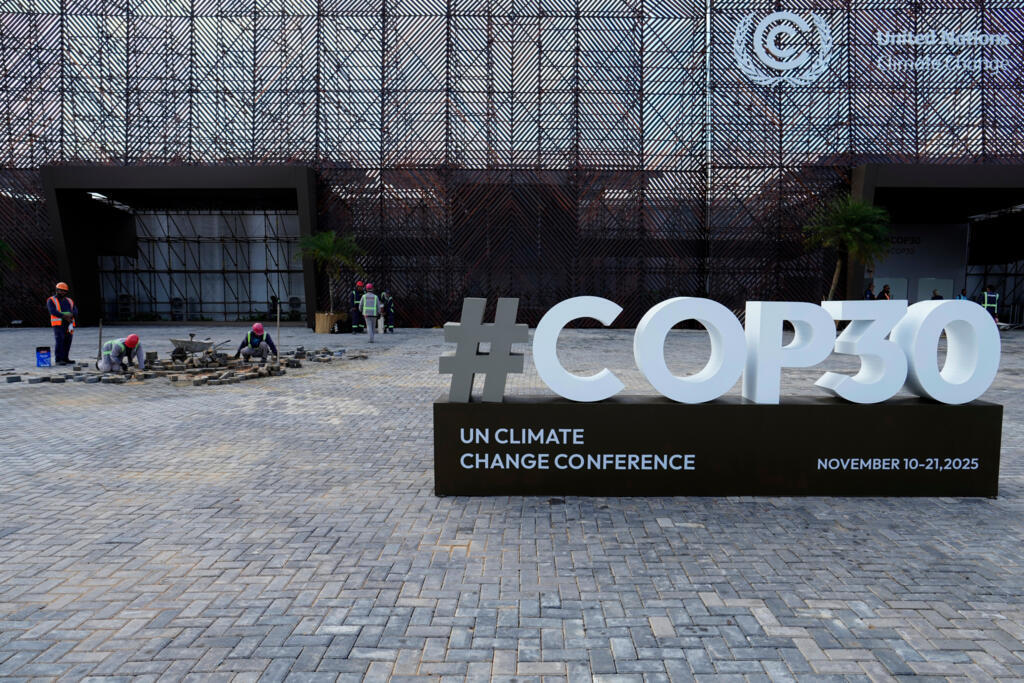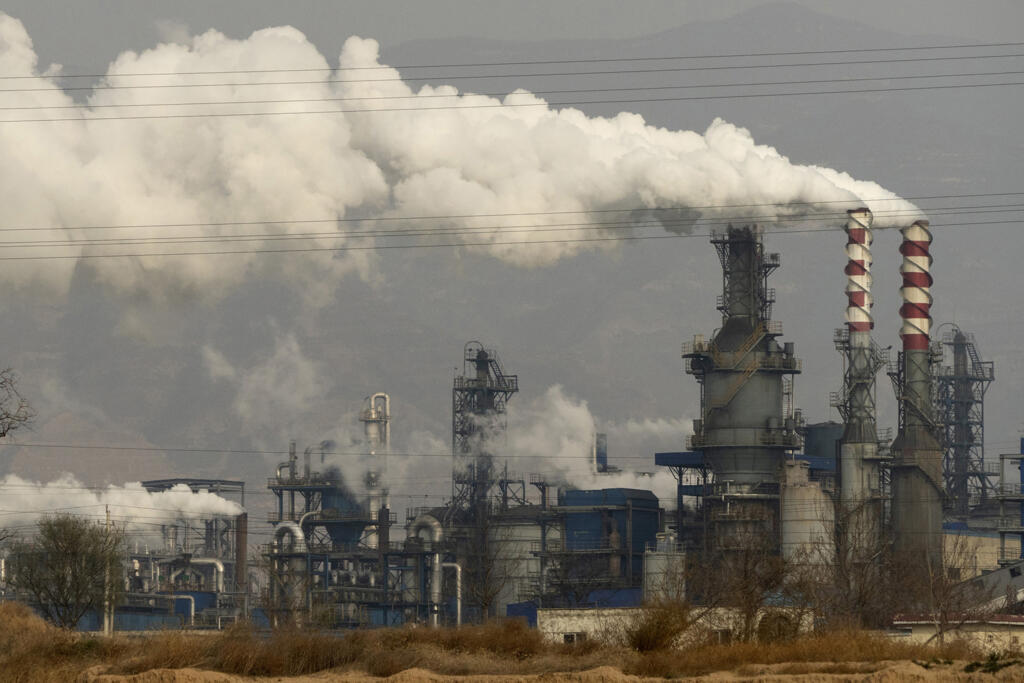
World leaders arrive in the Brazilian Amazon on Thursday for a high-stakes test of global climate promises, with vulnerable nations demanding far greater financial support and scientists warning the world is still veering off track.
The two-day Belem Climate Summit takes place in the humid port city at the mouth of the Amazon River – a symbolic prelude to the UN’s Cop30 conference that begins there next week. Together they mark 10 years since the Paris Agreement and bring global attention back to the planet’s most vital carbon sink.
For Brazil, it is a moment to show that protecting forests and reducing poverty can go hand in hand. For much of the world, it is a chance to prove that promises made in Paris can still deliver results.
“We have to somehow manage to convey that there is progress on this agenda, because we are facing a phase in which most of the public think that this agenda is losing ground,” Cop30 president Andre Correa do Lago said.
But the talks open amid sobering news. Around two-thirds of the 195 countries that signed the Paris accord missed the February deadline to submit updated climate plans for 2035.
By early November, only about 65 countries had submitted new national climate plans for 2035, and most failed to impress. China’s target fell well below expectations, while India has yet to finalise its pledge.
The European Union agreed on Wednesday to a weakened 2040 climate goal after all-night talks in Brussels, keeping its 90 percent emissions cut headline but allowing countries to offset up to 10 percent of that target through foreign carbon credits and delay key measures.
Environmental groups warned the compromise undermines Europe’s credibility as a climate leader, while several member states argued it was needed to protect industries struggling with high energy costs and competition from cheaper imports.
Europe’s climate progress overshadowed by worsening loss of nature
The billion-dollar gap
The battle over money will dominate both the Belem summit and Cop30, which runs from 10 to 21 November. Wealthy nations are under pressure to explain how they will help poorer ones cope with rising seas, extreme heat and mounting climate losses.
Last year’s Cop29 in Baku ended with developed countries agreeing to provide $300 billion a year in climate finance by 2035 – far below what developing nations say is needed. Governments also set a vaguer goal of mobilising $1.3 trillion a year from public and private sources but offered little detail on how to achieve it.
A UN Adaptation Gap Report last week found the world will need to spend about $310 billion a year by 2035 to prepare for worsening floods, droughts and heatwaves – roughly 12 times current spending levels.
“More than ever, the general public, governments in general, cities in general, want resources for adaptation,” Correa do Lago said.

CARE International, which campaigns for climate justice and humanitarian relief, warned that the shortfall is already leaving millions exposed, especially women and girls.
“The need for adaptation finance is immense, up to $300 billion per year, yet current funding barely scratches the surface,” said Marlene Achoki, CARE’s global climate justice policy lead. “Cop30 will be successful, and truly a people’s Cop, when sufficient adaptation finance is provided to drive real action and implementation on the ground.”
Senior adviser John Nordbo described climate finance as “the fault line of global climate action”, saying many rich countries inflate figures and repackage loans as aid.
“Much of this so-called support comes as loans, not grants, and repayments often flow quietly back to donors,” he said.
Indigenous knowledge steers new protections for the high seas
Brazil's forest gamble
Holding the leaders’ summit in Belem brings the focus back to the rainforest’s central role in stabilising the planet’s climate.
The Brazilian government will use the event to launch the Tropical Forests Forever Facility – a new global fund that will reward countries with high tropical forest cover for keeping trees standing instead of cutting them down.
The facility aims to raise $25 billion from donor governments and another $100 billion from private investors, with Brazil already pledging $1 billion.
The fund “could be a step forward in protecting tropical forests” if paired with firm commitments to end deforestation by 2030, said Clement Helary, a forests campaigner with Greenpeace.
Tropical primary forest loss hit a record high in 2024 – the equivalent of 18 football fields a minute, driven largely by fires.
Hosting the conference in the Amazon makes it “the perfect opportunity to ramp up action to end deforestation”, the WWF has said, noting that global pledges from Cop26 to halt forest loss by 2030 have stalled.
How Brazil’s booming coffee industry is driving deforestation
From talk to action
Cop30 will test whether the world can finally move from ambition to action.
Under the Paris Agreement, countries must strengthen their emissions targets every five years, but the latest round of 2035 plans still falls well short of what is needed to limit warming to 1.5C.
What is needed now is “a step change” – moving from setting targets to delivering them, said the World Resources Institute.
The first global stocktake at Cop28 showed the world is “significantly off track”, while the UN Secretary-General has said overshooting the 1.5C goal is “inevitable” unless countries “change course”.
When the Paris Agreement was signed, the planet was on track for roughly 4C of warming by 2100. Later pledges have cut that to around 3C, and if all net-zero promises were fully met, the rise could fall closer to 1.9C.
Deeper emissions cuts and large-scale ecosystem restoration, scientists say, could still bring temperatures back below 1.5C later this century.
Last year was the first time the 1.5C threshold was breached for an entire year, with extreme weather causing more than $300 billion in damage. Renewable energy and electric vehicles, while already saving lives and creating jobs, is not happening fast enough, experts warn.

Record surge in CO2 puts world on track for more long-term warming
Can trust survive?
Unlike earlier climate summits, Cop30 has no single grand deal in sight.
Organisers are calling it the “Cop of Implementation”, focused on turning words into measurable progress.
“The Brazilian Presidency’s central challenge is to turn promises into real-world action – bridging divides between developed and developing countries, ambition and equity, mitigation and adaptation,” said Karen Silverwood-Cope from WRI Brazil.
The political mood adds to the challenge. US President Donald Trump has dismissed climate change as a “con job” and is sending no senior officials to Belem, deepening fears that global climate diplomacy is losing momentum.
Still, Brazil hopes the Amazon setting can help restore it. President Luiz Inacio Lula da Silva has been in Belem since the weekend, meeting local communities and overseeing preparations ahead of the summit.
He is expected to stay through the opening of Cop30 on Monday, as world leaders gather in the heart of the Amazon – a symbolic setting for a conference that will test whether a decade of promises can finally turn into action.







